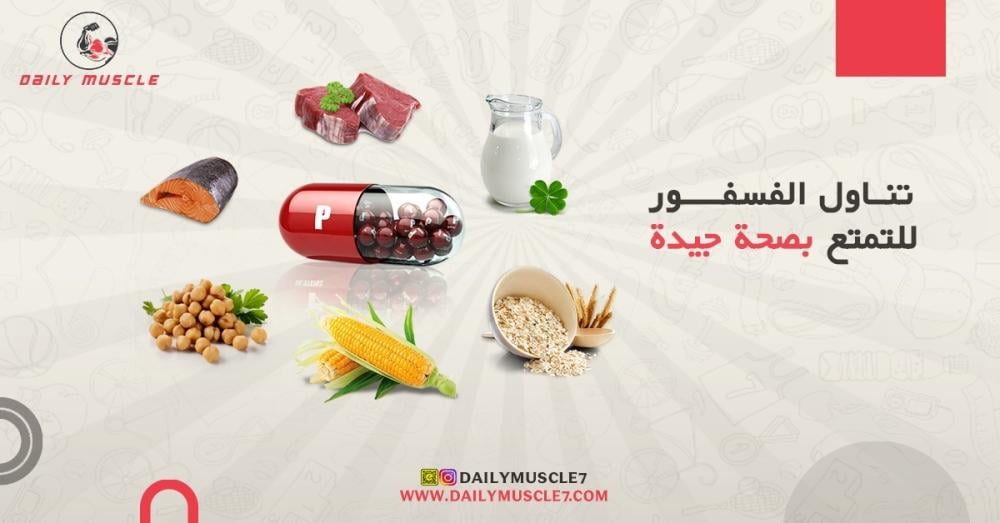
Phosphorus is an essential mineral for the body's health, playing a vital role in many biological functions. It is found in large amounts in the body, accounting for about 1% of body weight. It is the second most abundant mineral in the body after calcium and is present in every cell, primarily involved in the formation of bones and teeth.
The Importance of Phosphorus for the Body:
1. Formation of Bones and Teeth: Phosphorus is a crucial part of the skeletal system, working alongside calcium to form bones and teeth. A deficiency in phosphorus can lead to weakened bones and an increased risk of osteoporosis.
2. Energy Production: Phosphorus plays a role in converting food into energy by contributing to the production of energy compounds like adenosine triphosphate (ATP), which is the main energy source for cells.
3. Acid-Base Balance: Phosphorus helps maintain the body's acid-base balance, which is essential for cellular and enzymatic functions. It also helps regulate pH levels both inside and outside the cells.
4. Tissue and Cell Repair: Phosphorus is involved in the formation of DNA and RNA, which are the basis for cell formation and repair. Therefore, phosphorus is necessary for tissue growth and regeneration.
5. Supporting Muscle and Nerve Functions: Phosphorus helps regulate nerve signals and improves muscle movement. It contributes to muscle contractions, including the heart muscle, which is essential for maintaining vital bodily functions.
6. Enhancing Digestion: Phosphorus activates enzymes that aid in digestion and improve the body's absorption of various nutrients.
Foods Rich in Phosphorus:
There are many foods that contain good amounts of phosphorus, making it easy to meet the body's daily needs for this element.
1. Fish and Seafood:
Salmon
Tuna
Sardines
Shrimp Seafood is rich in phosphorus and also contains important Omega-3 fatty acids for heart health.
2. Meat and Poultry:
Beef
Chicken
Turkey Meat is an excellent source of both protein and phosphorus, supporting muscle building and cell repair.
3. Dairy Products:
Milk
Cheese
Yogurt Dairy products are not only rich in calcium but also contain large amounts of phosphorus, which promotes the health of bones and teeth.
4. Legumes and Nuts:
Beans
Lentils
Chickpeas
Almonds and walnuts Legumes and nuts are plant-based sources rich in phosphorus, making them suitable for vegetarians and those looking to diversify their phosphorus sources in their diet.
5. Whole Grains:
Oats
Brown rice
Quinoa Whole grains contain good amounts of phosphorus, along with fiber that aids digestion and helps regulate blood sugar levels.
6. Eggs: Eggs, especially the yolk, contain good amounts of phosphorus and are an ideal choice to meet the body's needs for both protein and phosphorus.
7. Vegetables:
Potatoes
Corn
Peas Some vegetables, such as potatoes and corn, also contain decent amounts of phosphorus and are beneficial as part of a balanced diet.
Recommended Daily Intake:
The body's phosphorus needs vary depending on age and health status:
Adults: About 700 mg per day.
Children and adolescents: Between 500 and 1,250 mg per day, depending on age.
Pregnant and breastfeeding women: Need additional phosphorus to support fetal growth and breastfeeding.
In Conclusion, Phosphorus is an essential nutrient that plays a vital role in many biological processes, from bone formation to energy production. To meet the body's needs for this mineral, foods rich in phosphorus, such as fish, meat, dairy products, nuts, and legumes, can be included in the daily diet.

